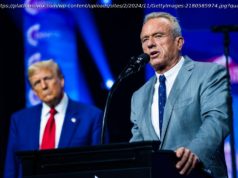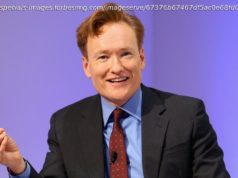The president’s reported disclosure of classified information to Russia is only the latest example of the self-proclaimed great negotiator conceding to officials from overseas everything they want.
The pattern has become clear: A foreign official comes to President Trump. They speak. The official leaves with what he or she wants, and Trump emerges chastened, having reversed a major policy, or both.
A Washington Post report Monday night revealed the latest and most embarrassing of the incidents. During an Oval Office meeting last week with Russian Foreign Minister Sergei Lavrov and Sergei Kislyak, Moscow’s ambassador to the U. S., Trump reportedly revealed classified information about an ISIS terror plot that was so sensitive that the U. S. did not share it even with its closest allies. The story has since been confirmed by multiple outlets, and while the White House has pushed back, it hasn’ t disputed any specifics of the story. While the president is legally entitled to disclose that information, the leak could jeopardize cooperation with allies, and it makes a hypocrite of Trump, who repeatedly criticized Hillary Clinton, his Democratic rival for president, for far more minor mishandling of classified info.
What Did Donald Trump Tell the Russians?
It is a huge win for Russia, which has sought to sow chaos in American democracy and to separate the United States from its allies. Moreover, the information was reportedly freely given, as Trump boasted about the intelligence and briefings he receives.
Perhaps, as top intelligence officials have said of Russian interference in the election, the Kremlin is stunned at how successful the meeting turned out to be for them. But Lavrov and Kislyak had also carefully put themselves in a position to take advantage of good luck. As my colleague Julia Ioffe reported, and Politico ’s Susan Glasser confirmed, the Russians had been pressing hard for an in-person meeting with Trump, “a man who is now known for starkly reversing his positions if exposed to in-person pleasantries.”
Trump did not publicly reverse any major policies after his summit with Lavrov and Kislyak, but the outcome may be even better for Moscow. Nor are the Russians the only country to see the advantages of getting in the room with Trump. So, too, did Chinese leaders.
According to The Washington Post ’s Josh Rogin, NPR, and other reports, Chinese leaders began lobbying for a face-to-face meeting with Trump as soon as possible in his presidency. Ahead of the April visit by President Xi Jinping to the United States, Trump warned that their meeting would be “ a very difficult one.” That was a reasonable prediction. Trump had spent much of the campaign assailing China, complaining that the country was a currency manipulator (which had not been true since 2014) and that he would take a much harder line than the Obama administration had.
As it happened, the meeting with Xi was something of a love-fest. Trump and his spokesman have boasted since about the very good relationship they created with China’s leader, and hailed their friendship. If Trump was pleased with the outcome, Xi must have been ecstatic. The Chinese president emerged from the meeting with warm praise from Trump; a concession from the U. S. president that China was not manipulating its currency; and conciliatory statements about China’s ability to twist the arm of North Korea, its wild-eyed, nuclear-armed neighbor.
Trump explained the last of these flip-flops in an interview with The Wall Street Journal:
He then went into the history of China and Korea. Not North Korea, Korea. And you know, you’ re talking about thousands of years… and many wars. And Korea actually used to be a part of China. And after listening for 10 minutes I realized that not—it’s not so easy. You know I felt pretty strongly that they have—that they had a tremendous power over China. I actually do think they do have an economic power, and they have certainly a border power to an extent, but they also—a lot of goods come in. But it’s not what you would think.
The explanation was remarkable not only for Trump’s frank admission that he knew little about the background of the Korean Peninsula, but for his equally frank admission that the leader of a foreign country—and not just any foreign country, but a major American rival that Trump had repeatedly savaged rhetorically—could reverse his understanding of a key issue with just 10 minutes of persuasion.
It is no wonder that the Russians were eager to get in a room with Trump, but Russia and China were not the only foreign countries to recognize how easily swayed Trump could be.
The pattern began even before he was inaugurated, with a December phone call between Trump and Taiwanese President Tsai Ing-wen. Not only was the conversation a major breach of protocol, Trump seemed to be flirting with abandoning American recognition that Beijing considers Taiwan a part of a unified China. He was eventually talked down from this by advisers—and his vacillation is one reason Xi was so eager to meet—but his impressionability had been established.
Another example came in a bizarre 24 hours of kabuki geopolitical theater in late May. With Trump reeling from a series of legislative and judicial defeats, White House officials told reporters the president was close to signing an executive order announcing that the U. S. would pull out of NAFTA. That evening, the leaders of Canada and Mexico both called Trump. As the president told it, they begged him to reconsider, and to renegotiate the terms of the deal instead. Trump presented this as a triumph: He’ d gotten them to agree to renegotiation. Savvier observers saw a different picture: Trump’s threats were empty and his bluster easily dispelled. After issuing an intemperate threat, Trump had to be talked down by foreign leaders, whose only “concession” was agreeing to a renegotiation they had both long-since agreed to.
Even as Trump seems to get rolled by adversaries, his relationships with allies have been troubled. While Canada and Mexico are both close friends, the U. S. has notably vexed relationships with Russia, China, and Taiwan. Trump had a warm visit with U. K. Prime Minister Theresa May, but a visit from German Chancellor Angela Merkel was downright icy, marred by an ill-considered joke from Trump as well as his conspiracy-mongering about Barack Obama. Trump even managed to set off a feud in a phone call with Australian Prime Minister Malcolm Turnbull, though they smoothed things over during a recent visit by Turnbull to the U. S.
The pattern of concessions will be all the more important in the coming days. On Tuesday, Turkish President Recep Tayyip Erdogan visits Washington. Erdogan has become increasingly authoritarian, worrying many Western observers, but Trump has expressed admiration for the Turkish leader’s strength.






